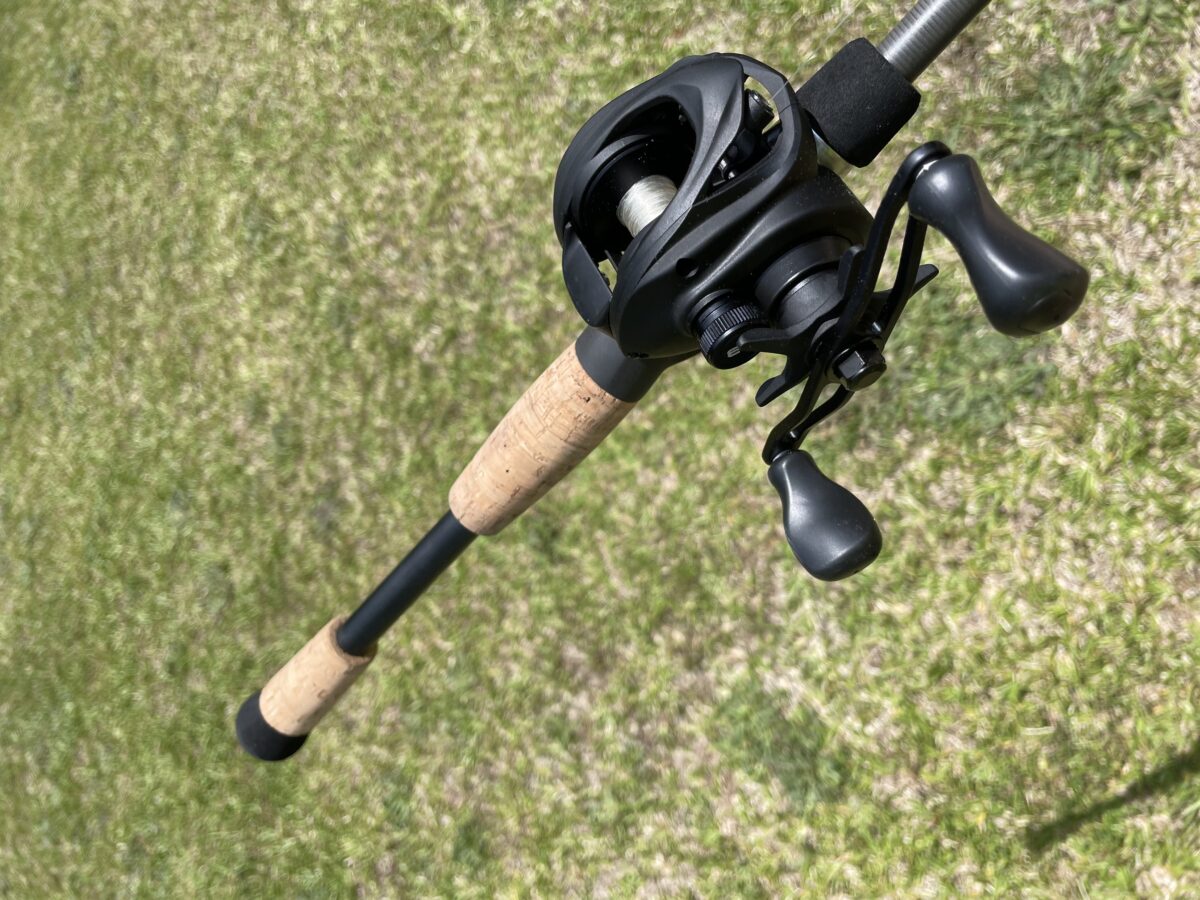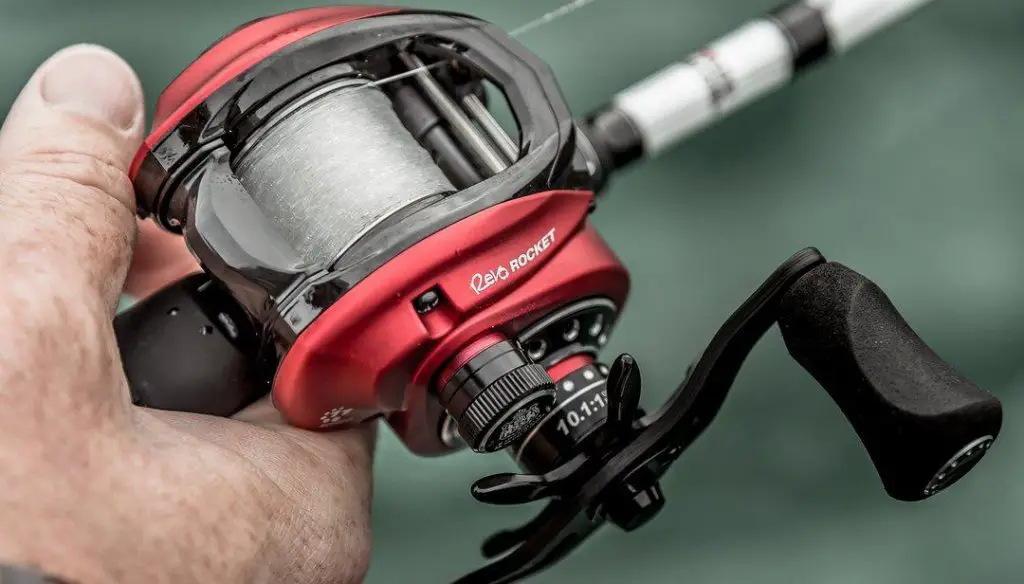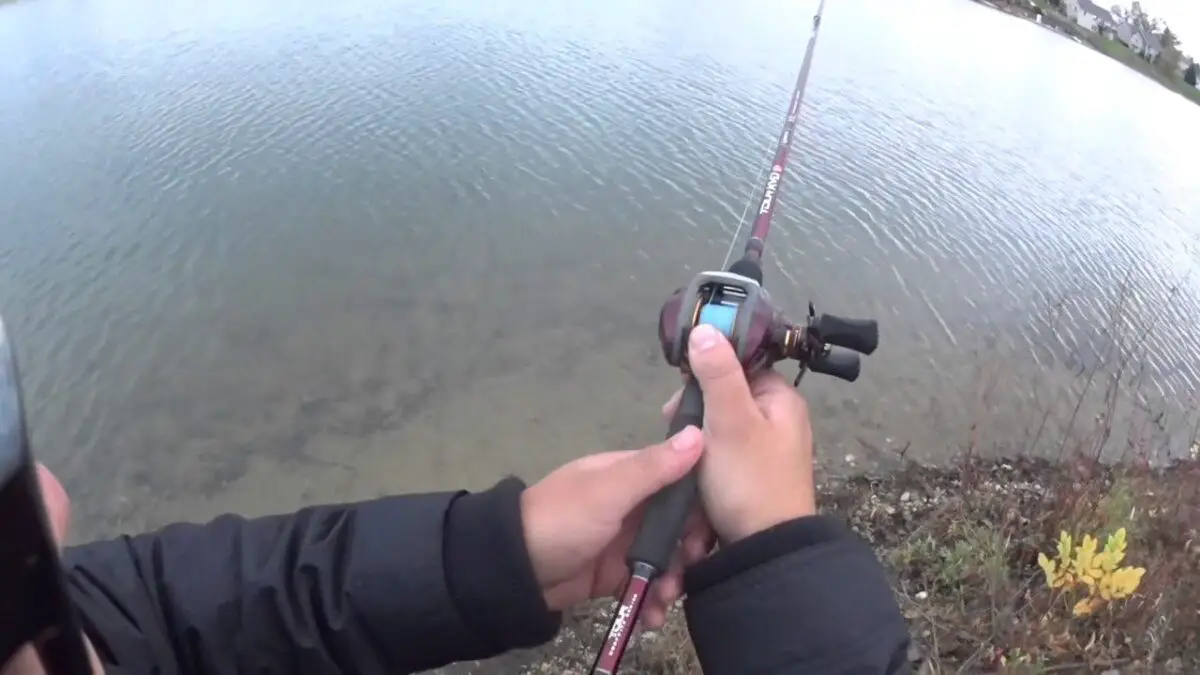Baitcasters are a specialist reel preferred for their superior casting accuracy, and high gear ratio. However, they require finesse and practice. As a personal user and enthusiast, I’d say yes, you should get a baitcaster, but it does depend on your fishing style, budget, and willingness to learn.

Table of Contents
When are Baitcasters Used
Baitcasting reels, often known as baitcasters, are traditionally used in situations requiring the angler to cast lures into tight spots precisely. They offer great casting control and are commonly used for larger fish due to their power and efficiency. My first baitcaster was used primarily for bass fishing, given the need to cast accurately near structures and the potential size of the fish.
Scenarios Where Baitcasting Reels are Preferred
- Precision Casting: Baitcasters are the right tool for pinpoint accuracy, especially around structures.
- Windy Conditions: When it’s a breezy day out on the water, the baitcaster’s design helps reduce line tangle significantly.
- Bass Fishing: Baitcasting reels are ideal for casting lures for largemouth bass, because of the increased accuracy you can place the lure in the exact right place.
- High Speed Lures: Baitcasting reels offer superior retrieve rates that help with fast moving jerkbait lures.
- Heavy Lures: Baitcasting reels shine when casting heavier lures. My favorite baitcaster reel handled hefty lures like a dream, unlike light spinning reels which tend to struggle.

Benefits of Baitcasting Reels
Let’s dive into the benefits of baitcasters.
Casting Distance
The casting distance a baitcaster can achieve is a game-changer. It outclasses many spinning reels when launching a lure across a lake or river. I remember my adrenaline pumping when I first saw my bait rocket through the air, sailing far beyond the reach of my old spinning reel. Not only was it a thrill, but it also opened up new possibilities for where I could fish. The satisfaction of nailing a perfect cast and seeing your lure splash down in a spot far off in the distance is one of the many joys that make baitcasting reels worth considering.
Casting Accuracy
Next comes the impressive casting accuracy that baitcasters bring to the table. With a baitcaster, you feel like you have control over the line like never before. After a little practice, I found myself accurately placing my lure exactly where I wanted it. Tight gaps, specific structures, or near the elusive hiding spots of the fish – it all became possible with a baitcaster. My spinning reel couldn’t offer that level of precision, making the switch even more gratifying.
Lower Weight
Baitcasters also tend to be lighter than their spinning counterparts. This might seem trivial at first, but anyone who has gone on a day-long fishing trip will tell you that even a small reduction in weight can make a world of difference. After switching to a baitcaster, my arms felt less fatigued, which allowed me to enjoy fishing for longer periods without discomfort.
Higher Gear Ratio
Another significant advantage of baitcasters is their higher gear ratio. This means they retrieve line faster than most spinning reels. If you’re targeting quick, agile fish or need to reel in your lure quickly for a fast recast, a baitcaster shines in these scenarios. The speedy retrieve also means less time between casts, increasing your chances of a successful catch.

Disadvantages of Baitcasters Expanded
There are also some disadvantages I should explain.
Lack of Versatility
Despite their numerous benefits, baitcasters are not without their shortcomings. One key disadvantage is their lack of versatility compared to spinning reels. Baitcasters can struggle with casting very light lures, a task spinning reels handle with ease. While this was a bit disappointing when I started using a baitcaster, I soon learned to adjust my gear and technique to compensate.
More Expensive
Another downside to consider is the price. Baitcasters typically carry a heftier price tag compared to spinning reels. I remember the sticker shock I experienced when shopping for my first baitcaster. It’s definitely an investment, but many anglers find it worth the extra cost for improved control and power.
Lower Drag
Another potential issue with baitcasters is that they usually have a lower drag system than spinning reels. This means they might not be the best choice if you’re going up against exceptionally large fish or specific types of fishing like surf fishing. This wasn’t a huge deal for me as a bass angler, but it’s something to consider depending on your fishing style.
Lower Line Capacity
Baitcasters tend to have a lower line capacity than spinning reels. For most freshwater anglers like me, this isn’t a significant issue. However, for those targeting larger species or fishing in deep waters, this could potentially limit your options. So it’s crucial to consider the type of fishing you’ll do when choosing between a baitcaster and a spinning reel.
Why do Pro Bass Anglers Prefer Baitcasters?
As a professional bass angler, I can attest that baitcasters are our go-to choice for several reasons. The ability to cast precisely, the high gear ratio, and the power these reels provide are all crucial factors in our decision. But it’s not just about the specs – the results we get on the water.
Bass fishing often involves targeting fish around structures such as fallen trees, dock pilings, and lily pads. These are places where bass like to hide out and ambush their prey, and they can be challenging to reach with less accurate gear. With a baitcaster, I can send my lure exactly where I want it to go, zipping it into tight spots with pinpoint precision. This level of control has been a game-changer for me and many other bass anglers.
The high gear ratio of baitcasters is a significant advantage. Bass are notoriously fast and aggressive swimmers. When a bass decides to strike, things happen fast, and having a reel that can keep up with the action is essential. A high gear ratio means I can retrieve line quickly, which is crucial when a bass is charging towards the boat or diving into heavy cover. It lets me maintain the upper hand during the fight, dictating the pace and preventing the fish from escaping.

Should I get a Baitcaster Reel?
As an angler and baitcaster user, I would say yes, but it really depends. If you’re just getting started with fishing, a spinning reel might be a better choice due to its ease of use and versatility. But if you’ve been fishing for a while and you’re looking to upgrade your gear or target larger fish, a baitcaster could be a great addition to your tackle box.
Be prepared for a learning curve and some initial frustrations, and be ready for a rewarding experience once you master it.
Conclusion
If used correctly, baitcasters are fantastic tools that can significantly enhance your fishing game. They offer a mix of power, accuracy, and control that spinning reels often can’t match. However, they come with their own challenges and might not be the best choice for everyone.
Ultimately, whether or not you should get a baitcaster depends on your fishing needs, style, and budget. But if you ask me, the satisfaction of casting right where you want with a baitcaster reel is hard to beat.
